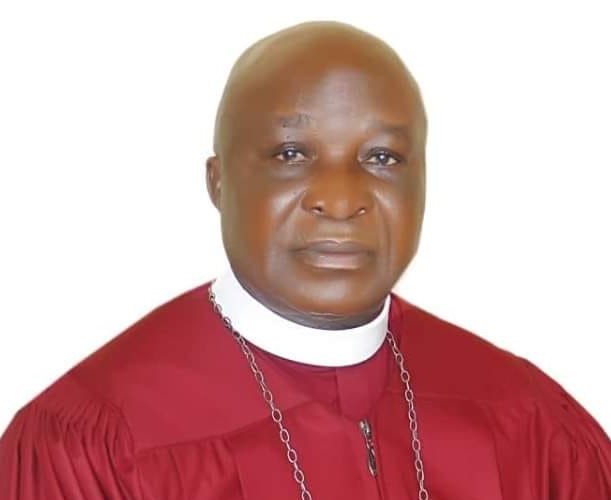
Richard Opoku’s face on his driver’s licence
Story by BBC
The black, weathered, plastic wallet found on the Italian island of Lampedusa had been carried 3,500km (2,200 miles) from Ghana and then seemingly discarded.
Opening it up, Richard Opoku’s face stared back at me from the corner of his driver’s licence.
It was one of a cache of personal documents, belonging to various people, that had been gleaned over time from a site where small boats used by migrants to cross the Mediterranean had been dumped.
It had been recovered several years ago and my curiosity was piqued – I wanted to know the story behind the licence.
What had happened to Richard Opoku?
The wallet was part of a melancholy collection of lost belongings that serves as a museum to the memory of the tens of thousands who have risked their lives crossing the Mediterranean from North Africa to Lampedusa.
Lifejackets, cooking pots, water bottles, headlamps and cassette tapes are neatly arranged on the shelves and along the walls of this room just next to the island’s harbour.
These everyday objects have been gathered by a group of volunteers since 2009.
“Some bring with them soil. They bring it from their country,” says Giacomo Sferlazzo, one of those behind the collection, as he holds up a small white polythene packet.
“We have found a number of these little parcels that show the bond with one’s country in Africa.”
He then pulls out a large folder full of photos, passports, driver’s licences and letters, including Mr Opoku’s document.

Nearer to Africa than Europe, Lampedusa – a tiny fishing and tourist island of about 6,000 people – has long been an arrival point for migrants and refugees seeking a new life.
Every year, thousands risk their lives trying to make their way to Europe.
In March alone, well over 3,000 people reached Lampedusa, more than double the arrivals in the same month last year.
With more than 20,000 recorded deaths and disappearances since 2014, this stretch of the Mediterranean has become the world’s deadliest migration route.
But Mr Opoku may be among those who survived and I return to Ghana to try and pick up the trail.
I travel to the region of Brong Ahafo, in the centre of the country, from where a high number of people migrate.
Perhaps someone here had crossed paths with Mr Opoku as they made their own journey north.
Some families are still waiting to hear from their relatives since they left many years ago.
Rita Ohenewaah is hoping for news from her husband who attempted to cross the Mediterranean from Libya to Lampedusa in 2016.
She last heard from him when he called from Libya in December of that year.
“He told me he would send some money through somebody who was travelling to Ghana. He also promised to add a mobile phone and Christmas clothes for the children. He called that morning and evening. I did not hear from him again.”
Like her, it was possible that there was a wife or relative waiting for news of Mr Opoku.
Back in the Ghanaian capital, Accra, there are a series of frustrations as data protection rules and bureaucratic obstacles block me from finding out more about this man.
But finally, after months of searching – a breakthrough.
Frank Apronti of the Document Fraud Expertise Centre of the Ghana Immigration Service manages to find a phone number for a relative of the owner of the driving licence.
It is his sister who then connects me to his brother who tells me that he is still alive and living in Germany.
When I call Mr Opoku, he is shocked when I tell him that I had found his driver’s licence in Lampedusa.
It turns out that he had lost it in 2011 and never expected it to turn up again. In fact, he does not believe that I have it until I share a picture of it.
I finally travel to Germany to meet him.

On a frosty winter morning, he welcomes me into his small one-bedroom apartment, on the outskirts of the northern German city of Bremen.
The 40-year-old now works there as a forklift truck driver.
When he was in Ghana he worked for a time as an illegal gold miner, or galamsey as they are known, to raise money for his journey. Every day these men risk their lives in insecure tunnels that sometimes cave in.
In 2009, when he decided to set off for Europe, he says he knew the risks that the journey would entail, but felt it was no more dangerous than the work he was doing in Ghana.
His travels saw him zig-zag across the region as he tried to make money to move on.
He first went to Cotonou in nearby Benin, and then to Lagos in neighbouring Nigeria, where he earned money by driving a motor scooter carrying passengers around the huge city.
From there he returned to Cotonou and proceeded north to neighbouring Niger and worked in a local restaurant for another two months.
But the journey in a vehicle across the desert from Niger to Libya was the biggest test yet. He used the money he got from working in Nigeria and Niger to pay the fare.
He was amazed at how the driver knew where to go in a place where there were no roads.
“At times you will meet a group, the whole 35 people with the driver… they’re all dead.”
Perhaps they died of thirst – he is not sure.
“Water is something like gold or diamonds on the journey. Maybe the whole day you only drink once or twice – just a small sip.”
At the Chadian border, the vehicle was stopped by criminals and the passengers stripped of their clothes and money.
Mr Opoku managed to prevent his cash from being taken by secreting it on his body.
But his troubles were not over once he reached Libya. He was kidnapped for ransom and beaten to a pulp because he was unable to reach a relative to pay. Finally, a woman who was looking for a domestic worker paid for his release.
How a lost wallet in Lampedusa sparked a search for a missing Ghanaian migrant
Then in 2011, two years after he had left Ghana and in the midst of the uprising against Libyan leader Muammar Gaddafi, Mr Opoku boarded a boat in Tripoli to make the crossing to Lampedusa.
But in the middle of the Mediterranean Sea, the boat’s engine cut out. Mr Opoku and and his fellow passengers had to rely on the mercy of the wind until they were rescued by the Italian coast guard.
He lost his licence when they docked on the shores of Lampedusa.
They were initially put in a camp and then transferred to a migrant centre in Sicily. His plan was to head to Germany, as he had heard from other Ghanaians that it was a good place to be.
While in Italy, however, he applied for asylum.
His application was initially refused, but says that he managed to get permission to be in Europe as the UN recommended to Italy that anyone who fled Libya during the 2011 turmoil should get permission to stay for a year. I have been unable to verify this claim.
“The journey was very rough. It was hell,” he says.
“But there’s no hope at home so you will just bear the pains and continue.”
Mr Opoku had imagined an easy life in Europe, but says things did not turn out that way.
“When I was in Africa, I thought in Europe, you will get money easily but it’s not like that. You have to work hard.
“But at home, there was no plan for me to survive, so I will say that I’m grateful to be here.”





Recent Comments